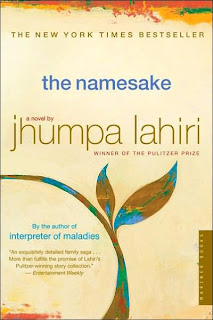Gogol Ganguli is born to an Indian academic and his wife, both recent American citizens. Ashoke (dad) and Ashima (mom) go through the traditional practice of naming their son with a formal name chosen by Ashima's grandmother, but her letter with the name is lost in the mail. In a rush, they name their son Gogol, after a Russian author Ashoke was reading when he was nearly killed in a train accident while living in India. Although the name was supposed to be a placeholder, it sticks for most of Gogol's life, tying this Indian-American to Russia. Gogol eventually changes his name, in hopes it will give his life some anchor to America, then marries a fellow Bengali, which again attaches him to another country. What part of our lives is decided by factors out of our control? Should our parents' customs also be ours simply by birth, or are we truly free to create our own life untethered to countries and cultures? What do we owe our family name?
This book clocks in at under 300 pages, making it a leisurely, one-day read. Lahiri doesn't mince words, but her prose is lyrical nonetheless. Ashima and Ashoke are the parents anyone could have had: Ashima pushes her children to be studious, social, and respectful of their culture, and Ashoke wants them to take advantage of the opportunities awarded to them in their country. The traditions change, but I was struck by the familiarity of this family with parents from half the world away. A beautifully constructed work, perfect for a day of travel.

No comments:
Post a Comment